Cheat Sheet: Role of Regional Parties | Indian Polity for UPSC CSE PDF Download
Introduction
Regional parties in India are pivotal in representing diverse regional interests and shaping national politics through coalition dynamics. They reflect the country’s cultural, linguistic, and social diversity, playing a significant role in state-level governance and influencing national policies. This chapter provides a clear overview of their features, classification, rise, roles, and dysfunctions, serving as a concise reference for understanding their impact on Indian polity.
Features of Regional Parties
Regional parties focus on specific geographic, cultural, or ethnic interests, prioritizing state-level governance and regional autonomy over national dominance.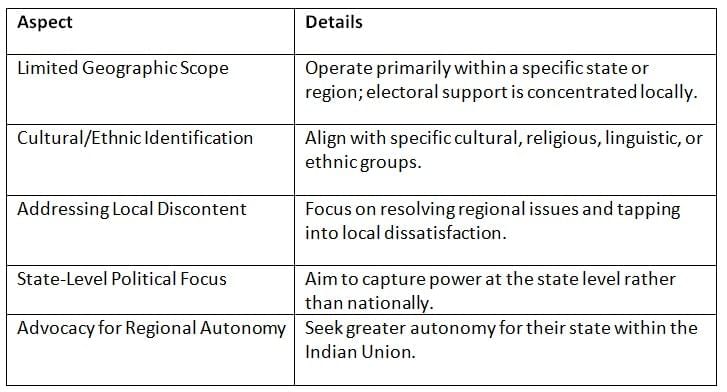
Key Points: Regional parties prioritize local issues and identities, making them key players in state politics while advocating for regional autonomy.
Classification of Regional Parties
Regional parties in India are diverse and can be categorized based on their focus, origin, or leadership style, reflecting their unique roles in the political landscape.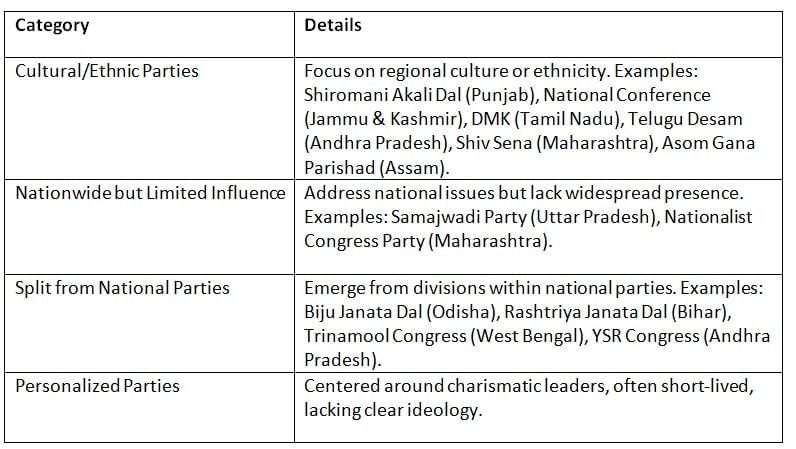
Key Points: The classification highlights the diversity of regional parties, from culturally rooted to leader-driven, shaping their influence in Indian politics.
Rise of Regional Parties
The growth of regional parties in India stems from socio-cultural, economic, and political factors, enabling them to challenge national parties and gain prominence.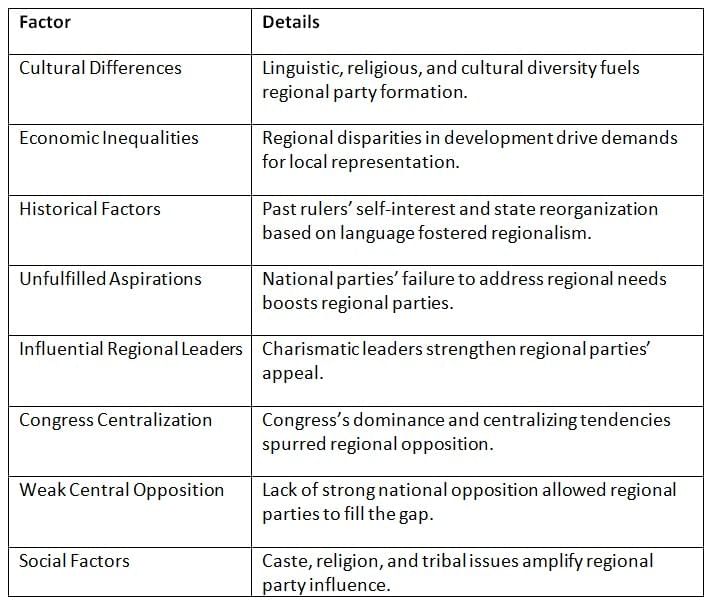
Key Points: Regional parties have risen due to India’s diversity, national parties’ shortcomings, and social-political dynamics, making them key players in state and national politics.
Role of Regional Parties
Regional parties significantly influence Indian politics by enhancing governance, challenging one-party dominance, and promoting democratic participation.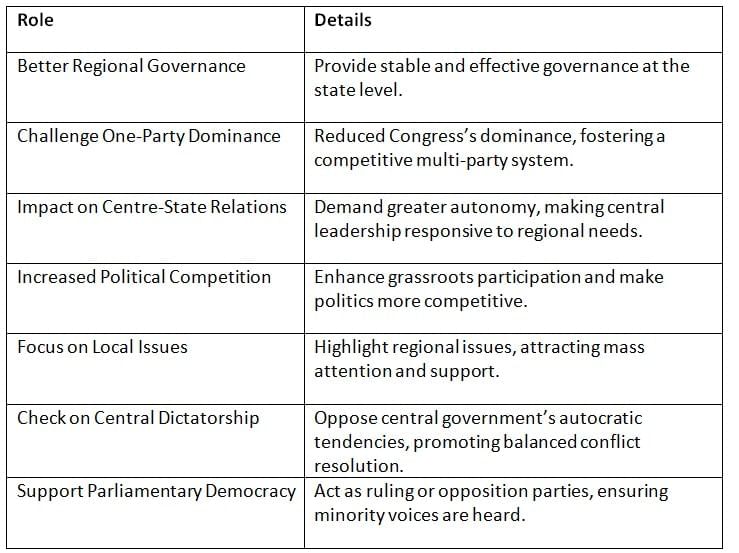
Key Points: Regional parties strengthen democracy by improving regional governance, challenging national dominance, and amplifying local voices.
Dysfunctions of Regional Parties
While regional parties contribute to Indian politics, their focus on regional interests can lead to challenges that hinder national unity and governance.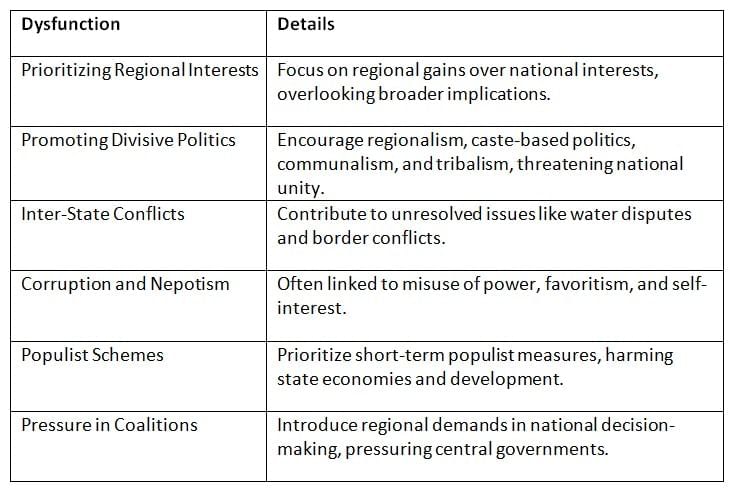
Key Points: Regional parties’ narrow focus can undermine national unity, foster divisive politics, and prioritize short-term gains over long-term development.
Chronology of Key Developments
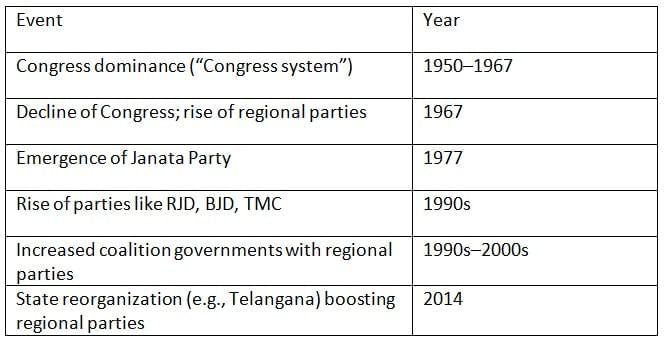
Conclusion
Regional parties in India are vital for representing diverse regional interests and shaping both state and national politics. Their rise reflects India’s cultural and social diversity, challenging one-party dominance and enhancing democratic participation. However, their focus on regionalism and populist policies can hinder national unity and development. Understanding their features, roles, and dysfunctions is essential for grasping the complexities of India’s multi-party democracy.
|
151 videos|780 docs|202 tests
|
FAQs on Cheat Sheet: Role of Regional Parties - Indian Polity for UPSC CSE
| 1. What are the key features of regional parties in the political landscape? |  |
| 2. How are regional parties classified? |  |
| 3. What factors have contributed to the rise of regional parties? |  |
| 4. What role do regional parties play in the Indian political system? |  |
| 5. What are some of the dysfunctions associated with regional parties? |  |





















